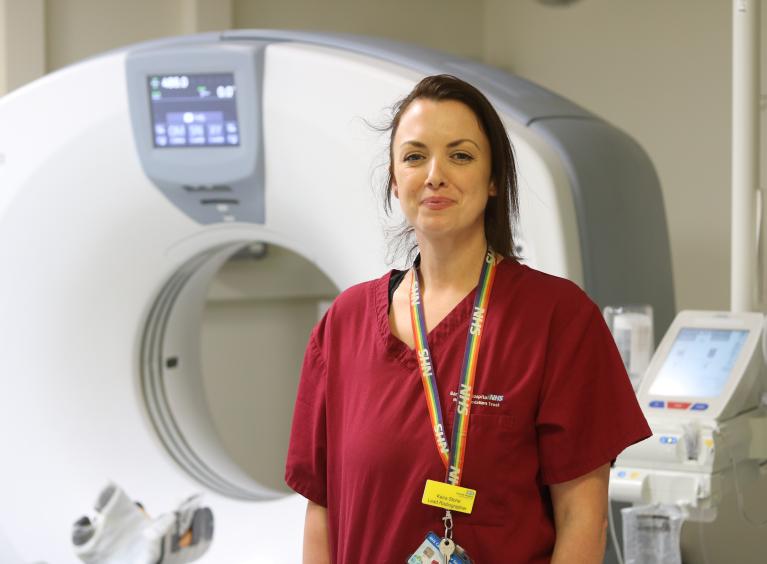Our Emergency Department is very busy right now and some people are experiencing long waits. If you do not require emergency care, please use an alternative such as 111 online.
The services offered by the Nuclear Medicine Department are divided into 2 categories:
- imaging tests, where a picture of how the body is working is obtained using a gamma camera
- non imaging tests, which provide physiological information without needing a picture to be taken
Imaging Tests
All imaging tests involve a 2 step procedure:
- the administration of a radioisotope (a chemical element that emits radiation during its breakdown) to the patient. This may be intravenous, oral or by a number of other routes
- the production of a picture or series of pictures of the distribution of radioisotope within the body
The main tests undertaken at Barnsley Hospital are:
- bone imaging
- cardiac imaging
- kidney imaging
- lung imaging
- parathyroid imaging
- thyroid imaging
Please note that patients will be slightly radioactive for a short time following their visit. Therefore, patients are advised not to spend a long time with small children for the rest of the day.
Non-Imaging Tests
There are many cases where an image of the radioactivity in the body is not required. Information about the way in which the body metabolises a given tracer can often be obtained from measuring the radioactivity present in samples of body fluids.
Types of Procedures
Nuclear Medicine Bone Scan
This test involves a small injection into a vein in the arm and a series of pictures will be taken about 3 hours later. Patients may stay in the hospital or leave to return later if they prefer. After the injection patients will be advised of the time they need to return for their scan. The scan itself will take approximately 45 minutes.
There are no side effects to this test. However, patients should inform their employer that they have had this test, before returning to work of a radiosensitive nature. Advice on these types of work can be obtained from the Nuclear Medicine Department.
Nuclear Medicine Cardiac Scan
This test involves a small injection into the arm and two sets of pictures being taken in the following sequence:
- an injection of radioactive dye
- a 20 minute wait for the dye to collect in the thyroid
- a series of pictures which will take about 30 minutes
- a further wait of 60 minutes, during which time the patient may leave the department for refreshments if they wish
- the final set of pictures which can take 50 minutes
For both sets of pictures, you will be asked to lie flat on the scanning bed and keep their head still. You may eat and drink as normal on the day of your scan.
Patients will be slightly radioactive following this scan and will be given special instructions about avoiding close contact with children, pregnant women and certain public places.
Nuclear Medicine Thyroid Scan
This test involves a small injection into the arm and a series of pictures being taken. Patients may eat and drink as normal beforehand and the scan takes approximately 40 minutes.
There are no side effects to this test. However, patients should inform their employer they have had his test before returning to work of a radiosensitive nature. Advice on these types of work can be obtained from the Nuclear Medicine department
Patients should avoid non-essential contact with children and pregnant women for the rest of the day after the injection.

